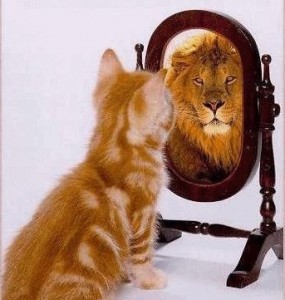George Kelly had quite an adventurous childhood and young adulthood. His life consisted of multiple moves, schooling in a one-room school, tutoring from his parents, attendance to four different high schools, giving speech classes to immigrants wishing to become U.S. citizens, becoming a member of the Navy in World War II, and living during the Great Depression. It is interesting also to note that at one point Kelly taught drama. His life was filled with many different roles and opportunities. Then, once the Great Depression hit, he gained a passion for psychology. He desperately wanted to help all of the troubled people. And shortly after, he got the opportunity to do so. Kelly began working with students and teachers both, and they all experienced a variety of emotional problems. Because Kelly didn’t have an extensive background in psychology nor was he trained in any therapeutic approaches, “he began to experiment with a variety of approaches, and he discovered that anything that caused his clients to view themselves or their problems differently improved the situation” (p. 545). This is why I would argue that George Kelly informs us about redemption. In his theories, I see hope. In his theories, I see a glimpse of a brighter future.
One thing I really like about Kelly is that, yes, he recognizes human fault. He sees the “fall” of humans. He recognizes emotional disturbances, limitations on human perspectives, and different ways humans process events and situations. But, Kelly doesn’t think we have to stay there. He thinks if we can just begin to see ourselves differently, if we can continue to play “make-believe” as adults, then we can pull ourselves out of the pits. Kelly’s therapeutic approach reflected his belief that psychological problems are largely related to perceptual problems, meaning the goal of therapy is to help the client view themselves and situations differently. I love this quote by Kelly:
We take the stand that there are always some alternative constructions available to choose among in dealing with the world. No one needs to paint himself into a corner; no one needs to be completely hemmed in by circumstances; no one needs to be the victim of his biography.
We don’t have to play the victim, and because of that I see freedom, hope, and redemption.


Matt McMahon
7:05 pm, 12.03.13
I also found Kelly’s work interesting. I think that the most interesting part, like you said,was his thoughts about changing people’s perspectives. I find this fascinating especially because of how he swims against the current of other humanistic psychologists because he didn’t think that you necessarily “just be yourself” because he thought he you were was part of the reason you were having problems. Instead you should try and change the way you saw things.
Laura Kate Music
9:54 pm, 12.04.13
I think Kelly had a very unique way of approaching psychology. it is interesting that he wasn’t afraid to tell people they too need to change. I could see him giving others a very real amount of help back in those days, simply because of this style of Psychology that he embraced.